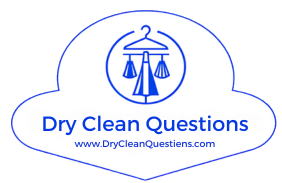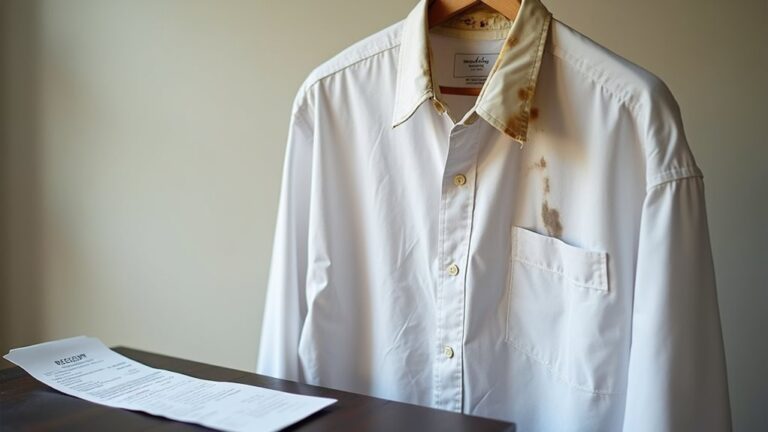You can deduct dry cleaning expenses, but honestly, it’s trickier than folding a fitted sheet 😅. The IRS allows deductions for qualifying uniforms that aren’t suitable for everyday wear, like scrubs or safety gear, and during overnight business travel for work clothes. Regular business attire? Unfortunately not deductible. You’ll need to pass their two-prong test and keep detailed receipts. There’s more nuance to steer through, especially regarding state versus federal rules.
General Rule for Dry Cleaning Deductions
When I first started working at a corporate job years ago, I honestly thought I could deduct my dry cleaning costs since my boss required us to look “professional” every day.
But I quickly learned that the IRS has pretty strict rules about what counts as deductible work clothing expenses.
Here’s the reality: your general business attire like suits and dress shirts typically won’t qualify as deductible, even if they’re expensive and you only wear them to work.
The IRS considers these items suitable for everyday wear, which disqualifies them from deductions.
However, if you’re self-employed, you might’ve better luck deducting cleaning expenses for truly specialized work clothing that’s unsuitable for everyday wear, provided you maintain proper documentation and meet specific criteria during business travel.
Protective clothing and uniforms that must be dry cleaned due to workplace requirements are generally deductible as business expenses for self-employed individuals.
Business Travel Exception

Although the general rule about dry cleaning deductions can feel pretty restrictive, there’s actually one situation where the IRS becomes surprisingly generous with these expenses, and that’s when you’re traveling for business overnight.
The IRS transforms from penny-pincher to surprisingly generous when it comes to dry cleaning during overnight business travel.
This business travel exception transforms your dry cleaning expenses from personal costs into legitimate, tax deductible travel expenses – but only if they meet specific IRS criteria.
You’ll need to prove these costs are ordinary and necessary for your business trip, directly connected to work-related attire you’re wearing while away from home.
The key difference here is that you’re not dealing with routine cleaning of your everyday clothes, but rather maintaining professional appearance during extended business travel.
Keep detailed documentation linking receipts to specific trips, because the IRS loves paper trails almost as much as they love collecting taxes! 📋
Remember that self-employed individuals may have different deduction rules compared to traditional employees when claiming these business travel dry cleaning expenses.
Qualifying Uniforms and Work Clothing
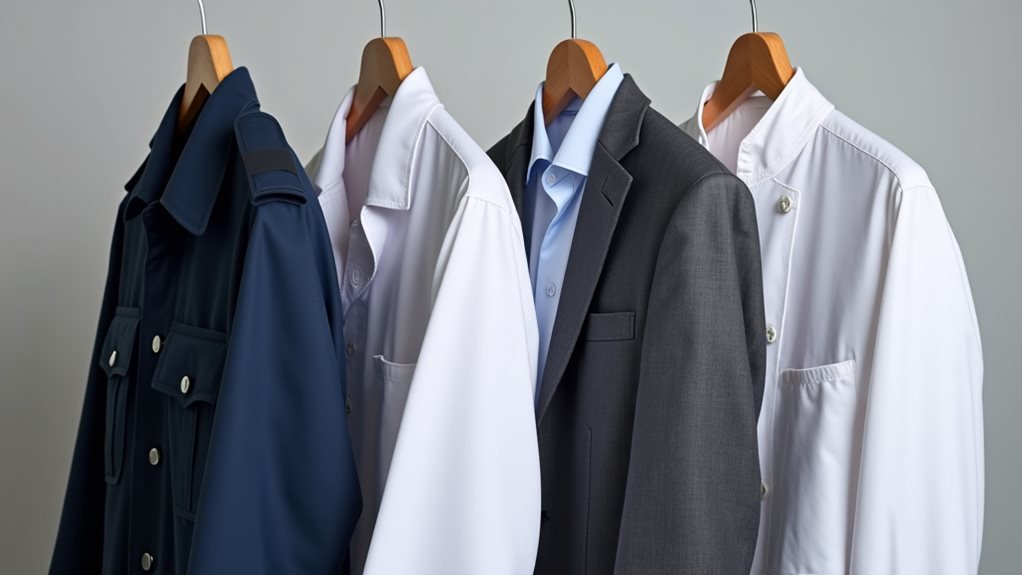
Beyond business travel scenarios, there’s another pathway to deductible dry cleaning expenses that might apply to your situation, and it involves the clothes you wear specifically for work.
When you’re required to wear qualifying uniforms or specialized clothing that isn’t suitable for everyday wear, those dry cleaning expenses might become deductible – though the IRS makes you jump through some hoops first.
Your work clothing must pass the IRS two-prong test: it’s necessary for the job and not wearable outside work environments.
Think scrubs, safety gear, or company uniforms with logos.
Healthcare workers who clean their required uniforms can often qualify for these deductions since their work attire meets the strict IRS criteria for job-specific clothing.
I’ve learned that documentation becomes your best friend here – keep receipts and proof of necessity, because the IRS won’t take your word for it when you’re claiming these deductions!
IRS Two-Prong Test Requirements
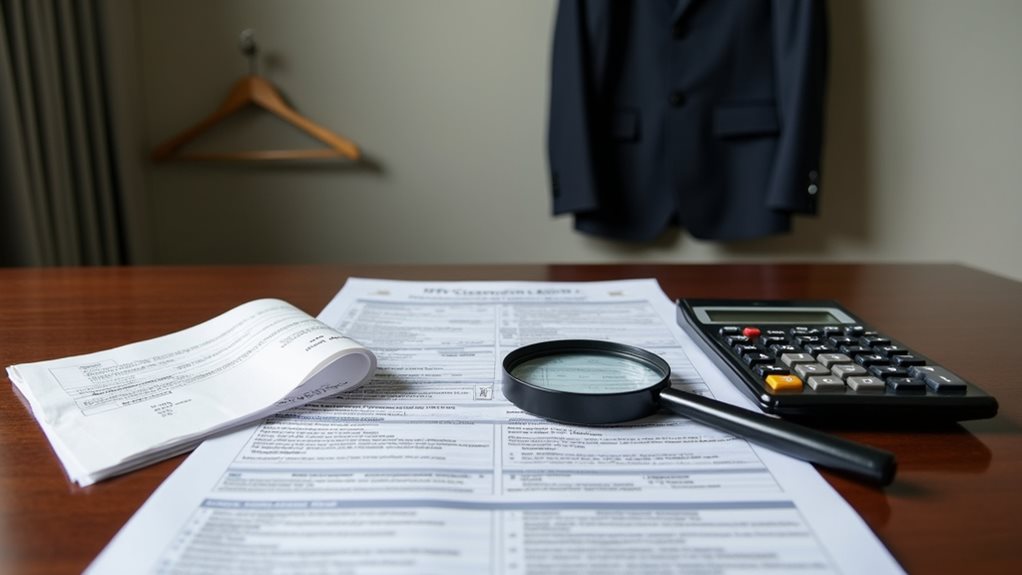
You’ll need to satisfy both parts of the IRS’s strict two-prong test if you want your dry cleaning expenses to qualify as deductible, and trust me, they’re pretty unforgiving when it comes to these requirements 😅.
The first condition demands that your employer specifically requires the clothing or that it’s absolutely vital for your self-employed work, while the second insists that the garments can’t be something you’d reasonably wear to grab coffee with friends or attend a casual dinner.
I learned this lesson the hard way when my accountant explained that my “business casual” blazers didn’t qualify, even though I only wore them to client meetings, because they looked perfectly normal for everyday social situations.
Keep in mind that the IRS generally requires documentation for amounts over $75 per expense, though for smaller dry cleaning bills under this threshold, detailed logs or other supporting records may suffice even without receipts.
Employment Requirement Condition
When I first started helping clients steer through tax deductions, I quickly learned that the IRS doesn’t make things simple, especially when it comes to work clothing expenses.
The employment requirement condition—the first part of the IRS Two-Prong Test—demands that your employer specifically requires the clothing as a job condition, rather than merely suggesting it for professional appearance.
You can’t simply decide that dry cleaning your business suits makes them deductible because you wear them to work.
The IRS wants clear evidence that your employer mandates specific clothing, like uniforms, safety gear, or specialized attire that’s definitely not suitable for everyday wear.
Without this official employment requirement, your dry cleaning expenses won’t qualify as a legitimate business expense, no matter how professional you look! 💼
Keep in mind that documentation requirements must be met to substantiate these employer-mandated clothing expenses for tax purposes.
Everyday Wear Suitability
The second hurdle in the IRS Two-Prong Test—everyday wear suitability—has tripped up more of my clients than I care to count, and it’s probably the trickier of the two requirements to manage successfully.
Even when your employer mandates specific business attire, you’ll lose those dry cleaning expenses as a tax deduction if the clothing could pass for casual wear on weekends.
The IRS doesn’t care that you only wear those designer suits to work; if they’re suitable for everyday wear, they’re considered personal expenses.
This clothing suitability rule has turned countless hopeful deductions into non-deductible costs, leaving professionals scratching their heads while the employment requirement feels almost secondary in comparison.
Beyond the tax implications, it’s worth considering that frequently dry cleaned garments may retain chemical residues that require proper airing out before wearing, especially for items worn close to the skin.
State Vs Federal Tax Considerations
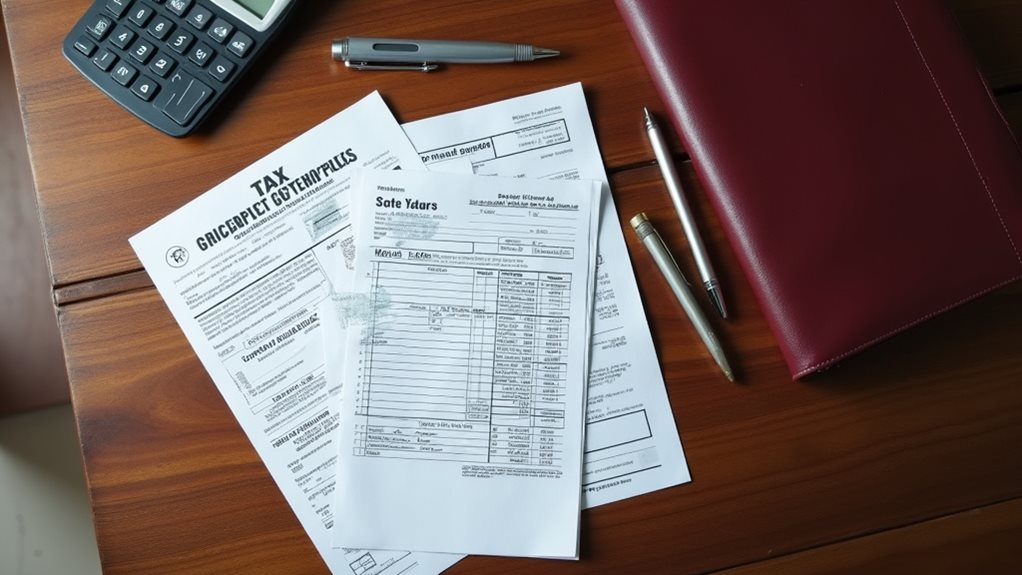
Although federal tax laws might seem like they’d apply everywhere, charting the maze of state versus federal dry cleaning deductions feels a bit like trying to follow two different recipe books for the same dish – they’re similar, but the ingredients and timing can vary dramatically.
While federal tax laws suspended employee dry cleaning expenses until 2026, your state tax regulations might tell a completely different story, potentially allowing deductions on state returns.
If you’re self-employed, you’ll find more flexibility with federal self-employed deductions, especially when your clothing meets specific qualifying criteria for business expenses.
Employee uniforms remain deductible for businesses under many state rules, but documentation requirements vary wildly – so keep those receipts organized and double-check both federal and state guidelines! 📋
Given the complexity of navigating both federal and state tax regulations for dry cleaning deductions, consulting with tax professionals ensures you maximize legitimate deductions while staying compliant with current IRS requirements.
Documentation and Recordkeeping Requirements

Three critical pieces of documentation can make or break your dry cleaning expenses deduction claim, and I learned this the hard way when I got a bit too creative with my recordkeeping during my first year of business travel.
You’ll need detailed receipts showing costs and dates, plus documentation proving your clothing meets IRS criteria for deductibility.
I recommend keeping an expenses log that connects each dry cleaning bill to specific business travel or uniform requirements – trust me, this saves headaches during tax preparation! 📝
Your recordkeeping should include the type of clothing cleaned and why it qualified for the deduction. Proper documentation guarantees compliance with IRS guidelines and protects you from potential penalties during audits.
Given the complexity of tax regulations surrounding clothing deductions, consulting with a qualified tax professional ensures you’re maximizing eligible deductions while staying compliant with current IRS requirements.
